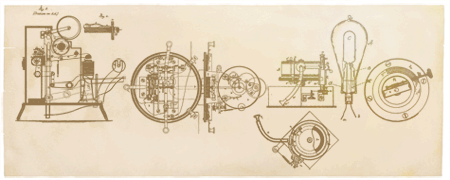
As G8 leaders meet to discuss poverty and climate change, Tanzanian Joyce Mbwilo, 30, tells of her struggles and hopes.
Joyce raises her hands and declares: "We are struggling, we don't want to remain poor.
"If I could talk to the heads of the G8 summit I would ask them to put themselves in our shoes, walking long distances to collect water and not able to send their children to secondary school."
Joyce is pictured with three of her five children. From 10 years of age, Joyce walked for 10 hours each night to fetch water for her family's washing, cooking and cleaning needs for the next day.
Leaving her village of Uhambingeto at midnight with other women from the village, she would return with her crushingly heavy 20 litres bucket of water at 1000 the following morning.
Each year Joyce covered more than 8,000 km. "We would come back from fetching water for 10 hours very exhausted," recounts Joyce.
"Sometimes we would fall down in the dark on the way back and spill the water and have to go back.
We had to spend more time working than sleeping because our children need water, they need food, they need to go to school." British aid agency Tearfund and the Anglican Diocese of Ruaha have provided aid for water to be piped into the village.
And Joyce's children now go to primary school because Tanzania's debt relief is credited with having led to the dropping of school fees, extra classrooms and renovation of this previously run-down local school. Life remains a struggle on less than $1 (60 pence) a day. Secondary school will be beyond her children, says Joyce, because of the prohibitive fees.
"We have no ability to get our food to market to sell because of poor roads and no trucks visit our village.
"We end up relying on middle men who are exploiting us. We make little or no profit on what we sell." In a bid to escape the stranglehold of the middlemen, Joyce and her husband Dickson diversified, planting an acre of paprika.
A foreign company approached farmers in the village, promising good rates for a new crop, only to decide in recent weeks the quality was not good enough and that they would buy none of it.
"We feel like the company has cheated us," says Dickson. "They are not concerned about us or our situation." Half of Joyce and Dickson's maize crop this year has died after abnormal weather.
"I have heard on the BBC talk about climate change," says Dickson.
"When countries spoil the atmosphere and change the climate it is like taking a gun and killing other human beings. We are farmers. We do not have another way of living". Joyce has joined with a small group of friends to diversify into growing more drought-resistant crops.
They have formed a small co-operative with friends from the village to pool and increase their resources for farming. "I have faith in God and like going to church. I am a peasant, but I would like my children to go to school and not struggle for their futures.
"If the G8 leaders could see how difficult it is for us and our lives, then perhaps this could help them in their decision-making..."
Images: Caroline Irby/Tearfund
Joyce raises her hands and declares: "We are struggling, we don't want to remain poor.
"If I could talk to the heads of the G8 summit I would ask them to put themselves in our shoes, walking long distances to collect water and not able to send their children to secondary school."
Joyce is pictured with three of her five children. From 10 years of age, Joyce walked for 10 hours each night to fetch water for her family's washing, cooking and cleaning needs for the next day.
Leaving her village of Uhambingeto at midnight with other women from the village, she would return with her crushingly heavy 20 litres bucket of water at 1000 the following morning.
Each year Joyce covered more than 8,000 km. "We would come back from fetching water for 10 hours very exhausted," recounts Joyce.
"Sometimes we would fall down in the dark on the way back and spill the water and have to go back.
We had to spend more time working than sleeping because our children need water, they need food, they need to go to school." British aid agency Tearfund and the Anglican Diocese of Ruaha have provided aid for water to be piped into the village.
And Joyce's children now go to primary school because Tanzania's debt relief is credited with having led to the dropping of school fees, extra classrooms and renovation of this previously run-down local school. Life remains a struggle on less than $1 (60 pence) a day. Secondary school will be beyond her children, says Joyce, because of the prohibitive fees.
"We have no ability to get our food to market to sell because of poor roads and no trucks visit our village.
"We end up relying on middle men who are exploiting us. We make little or no profit on what we sell." In a bid to escape the stranglehold of the middlemen, Joyce and her husband Dickson diversified, planting an acre of paprika.
A foreign company approached farmers in the village, promising good rates for a new crop, only to decide in recent weeks the quality was not good enough and that they would buy none of it.
"We feel like the company has cheated us," says Dickson. "They are not concerned about us or our situation." Half of Joyce and Dickson's maize crop this year has died after abnormal weather.
"I have heard on the BBC talk about climate change," says Dickson.
"When countries spoil the atmosphere and change the climate it is like taking a gun and killing other human beings. We are farmers. We do not have another way of living". Joyce has joined with a small group of friends to diversify into growing more drought-resistant crops.
They have formed a small co-operative with friends from the village to pool and increase their resources for farming. "I have faith in God and like going to church. I am a peasant, but I would like my children to go to school and not struggle for their futures.
"If the G8 leaders could see how difficult it is for us and our lives, then perhaps this could help them in their decision-making..."
Images: Caroline Irby/Tearfund


























